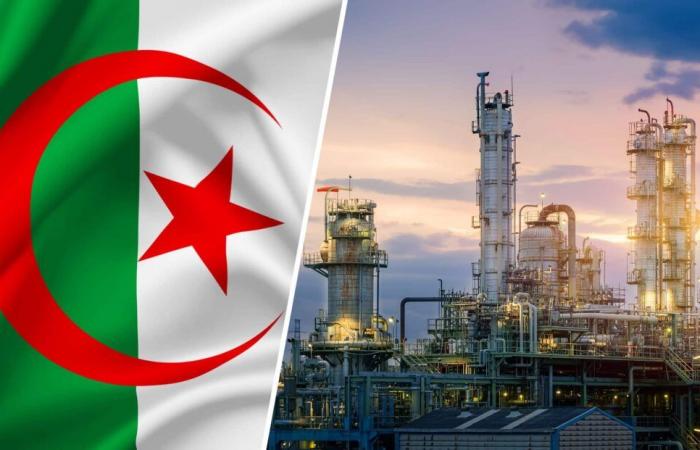Algeria is establishing itself as a key player on the African oil scene. Ranked third among the continent’s oil producers, it occupies a strategic position, behind Nigeria and Libya. With current production estimated at 908,000 barrels per day, the country aims to once again cross the symbolic milestone of one million barrels by 2026.
According to Energy Research Unit estimates, this ambition is part of a context of rebalancing of oil markets, strongly influenced by the decisions of OPEC+. In 2024, Algeria had an average production of 907,000 barrels per daya figure slightly down compared to 2023where it reached 973,000 barrels per day. This reduction is attributed to the country’s commitment to supply limitation policies dictated by OPEC+. On the African scale, only Nigeria, with 1.41 million barrels per dayand Libya, with 1,11 millionsurpass Algerian production.
Libya’s position is largely explained by its exemption from OPEC+ quotas, due to the chronic political unrest affecting its energy sector. For its part, Nigeria is benefiting from an increase in its production thanks to an increased fight against oil theft and sabotage of infrastructure in the Niger Delta. In comparison, Algeria maintains stable production, despite a downward trend observed for several years.
Economy
For Russia, Algeria has a new economic role in Africa
The role of OPEC+ quotas and voluntary reductions
The drop in Algerian production finds its origin in the reductions decided by OPEC+ to stabilize world oil prices. Since January 2024, Algeria has reduced its production by 51,000 barrels per day within the framework of the imposed quotas. Added to this is a voluntary reduction of 48,000 barrels per dayinitiated in May 2023. These adjustments aim to support prices, weakened by imbalances between global supply and demand.
Despite these restrictions, Algeria displays optimistic projections. According to theEnergy Research Unitproduction should remain at 908,000 barrels per day until the end of 2025before rising beyond a million barrels per day from 2026with the end of voluntary reductions.
Evolution and prospects of production
Historically, Algeria has experienced a period of high oil production. In 2009the country extracted on average 1.268 million barrels per day. Since then, production has declined, reaching 1.09 million barrels in 2016the year in which OPEC adopted the Algiers agreement to limit global oil supply. The continued decline in production has been accentuated by a lack of investment in new deposits and by constraints linked to the management of mature fields.
-To reverse this trend, Algeria is banking on several initiatives. The country is seeking to attract foreign investment in oil exploration and production, notably through reforms to its regulatory framework. In addition, the national company Sonatrach works to modernize infrastructure and optimize existing operations.
Economy
Algeria – Europe: towards the opening of a new era
Strong African competition
In Africa, the oil sector remains marked by strong heterogeneity. While Nigeria aims to achieve 3 million barrels per day in 2025Libya continues to struggle with frequent interruptions in its production, due to political crises. Other countries, such as Congo, Gabon and Equatorial Guinea, show more modest production levels, with respectively 225’000, 212’000et 57,000 barrels per day.
In this context, Algeria must not only meet the technical and financial challenges linked to the exploitation of its oil, but also face growing competition on the African and international market.
With significant proven reserves and a key role in OPEC+ decisions, Algeria has the necessary assets to strengthen its place among African oil leaders. If the country manages to restore its historic level of production and adapt to market dynamics, it could not only consolidate its position in the African top 3, but also play a central role in the global energy balance.






